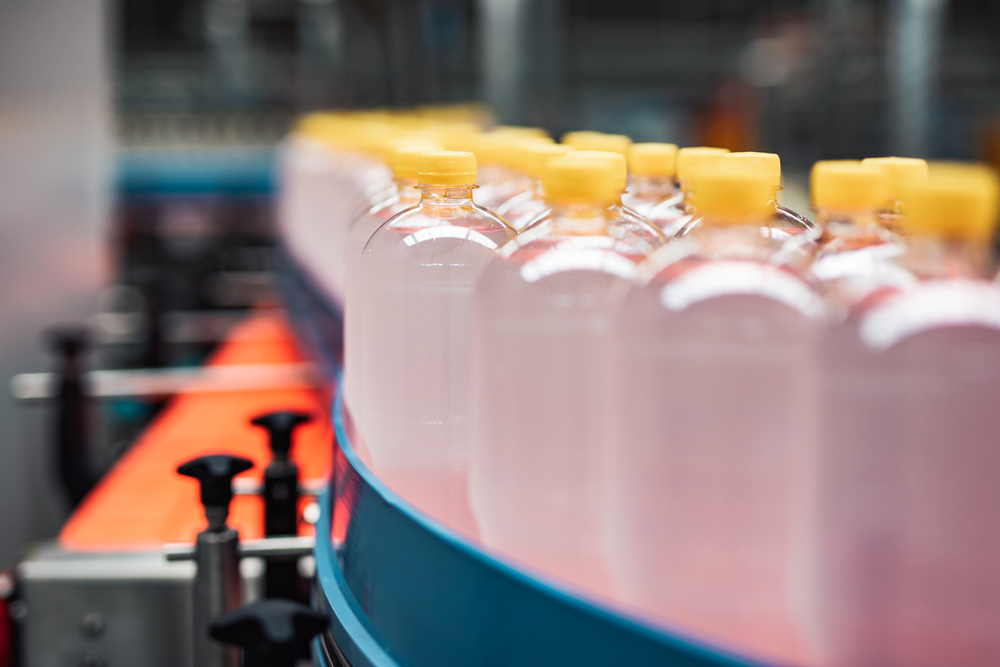Consumer goods giants failing on plastic goals, according to Ellen MacArthur Foundation
Progress update from Ellen MacArthur Foundation and UNEP warns the shift away from single-use plastic is not happening fast enough. Read More

Photo by hedgehog94 on Shutterstock.
The world’s largest consumer goods companies have made progress towards increasing the amount of recycled plastic in their packaging, but are still largely failing to cut down on the amount of single-use packaging they generate.
That is the conclusion of a major new report published last week by the Ellen MacArthur Foundation and the U.N. Environment Program (UNEP), which charts the progress of companies who have signed up to their New Plastics Economy Global Commitment and its various circular economy goals.
The report, which includes data from big brands such as Mars, Unilever, Coca-Cola, Nestle, PepsiCo and Danone, notes an uptick in the amount of recycled plastic used in packaging in 2019 compared to the previous year, with signatories averaging 6.2 percent recycled content.
However the update warns that despite some progress, the companies are a long way short of their combined goal of achieving a 25 percent recycled content share by 2025.
The report also highlights that just 1.9 percent of plastic content produced by the companies in 2019 was reusable, and warns of “limited evidence” that businesses are taking action to overhaul their product lines to reduce the need for plastic packaging in the first place.
Sander Defruyt, new plastics economy lead at the Ellen MacArthur Foundation, warned that companies needed to be more ambitious. “Going forward, it will be crucial to also see major steps forward in rethinking what packaging is put on the market in the first place,” he said. “We are calling on industry to rapidly increase efforts to reduce single-use packaging and eliminate packaging types that have no credible pathway to making recycling work in practice and at scale.”
Most single-use plastic elimination efforts to date have been small scale efforts, focused on lightweighting products or switching to new types of plastic or paper, the report flags, initiatives that are unlikely to deliver the levels of single-use plastic reduction required to shrink the mountains of waste material that harms the planet every year.
This progress update also notes substantial differences in how companies are adopting more circular approaches to plastic, with some firms having made significant strides towards their goals and others demonstrating “little to no progress.”
For example, while Danone and Unilever reportedly increased the recycled content in their packaging by more than 4 percent between 2018 and 2019, Nestle, Mondelez, and Colgate-Palmolive’s percentage of recycled content across their packaging remained unchanged.
However, the report notes that a growing number of companies have adopted plastic goals, with 31 percent of packaged goods and retail signatories to the New Plastics Economy’s Global Commitment having targets in place to either reduce the amount of plastic packaging they produce, or reduce their reliance on virgin plastic.
While calling on corporates to boost their ambition, the report also calls on political leaders to enact measures and policies that support collection and sorting efforts, noting that recycling efforts were unlikely to succeed at scale without such interventions.
“We know industry cannot deliver the change alone, and we are calling on policymakers to put in place the enabling conditions, incentives and international framework to accelerate this transition,” Defruyt said.
The report notes that the past year saw substantial investments towards achieving the 2025 targets reported by signatories, bringing the total amount of investment publicly committed by Global Commitment signatories to more than $10 billion.













